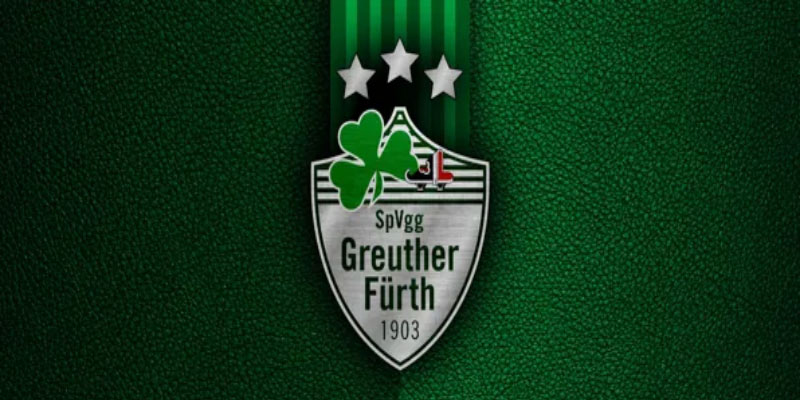Greuther Fürth FC, a cornerstone of German football history, combines rich tradition with modern ambition. From iconic achievements to legendary players, the club reflects the passion of its fans and an unyielding commitment to the sport. Beyond the field, Greuther Fürth FC is a key driver in nurturing local talent and inspiring community pride. Discover how this remarkable team, in collaboration with platforms like RR888 HOUSE, continues to bridge the past and future, leaving an unforgettable legacy in football.
Introduction to Greuther Fürth FC
Founded in 1903, Greuther Fürth FC has enjoyed over a century of participation in German football. The club emerged from the need for a cohesive sports organization in Fürth, a small town nestled within Bavaria. Throughout its existence, Greuther Fürth FC has experienced both highs and lows, but its resilience and adaptability have allowed it to maintain relevance in the ever-evolving landscape of German football.
Initially known as “FC Greuther Fürth,” the club changed its name to its current title after a merger with another local club, which reflects the dynamic nature of football in Germany. This adaptability is emblematic of a club that recognizes the importance of collaboration while remaining firmly committed to its roots.
Brief history of the club
The origins of Greuther Fürth FC can be traced back to its founding in 1903 by a group of enthusiasts who sought to establish a competitive football team. The early years were marked by participation in regional leagues and friendly matches, slowly laying the groundwork for what would become a storied history.
In the early 1900s, Greuther Fürth began to make a name for itself in German football. The club joined the Southern German Football Association, marking the start of its competitive journey. After years of hard work and dedication, Greuther Fürth managed to secure its first significant success in 1910 by winning the Southern German championship.
This achievement set the stage for greater ambitions. As the years progressed, Greuther Fürth FC continued to rise through the ranks and became a formidable contender in German football, establishing itself as a rival to some of the country’s most prominent clubs. Friendship matches against teams from other regions were pivotal in expanding their reach and building a loyal fanbase.
Greuther Fürth’s early years in German football
Greuther Fürth’s ascent to prominence in German football was characterized by an unyielding spirit and a commitment to excellence. By the mid-1920s, the club had reached the pinnacle of German football, competing in the newly formed Bundesliga. Greuther Fürth’s early years were marked by a blend of passion, determination, and innovation that laid the foundation for its legacy.
The club’s first major trophy came in 1926 when they won the German championship. This victory was monumental not only for the club but for the town of Fürth, capturing the imaginations of fans and instilling a sense of pride in their local identity. The club’s emergence during this period coincided with the blossoming of football as a popular sport in Germany, and Greuther Fürth positioned itself as a trailblazer, inspiring countless aspiring players.
Despite facing fierce competition from larger clubs in the following decades, Greuther Fürth maintained its competitive spirit. The club’s ability to cultivate homegrown talent became a hallmark of its identity, producing players who would leave an indelible mark on German football.
Club’s Legacy and Achievements
The legacy of Greuther Fürth FC is woven into the fabric of German football. From its inception to recent triumphs, the club has continuously left its mark on the game, showcasing a spirit of determination and community engagement that resonates deeply with fans.
Key milestones in the club’s history
Understanding the legacy of Greuther Fürth FC requires an exploration of its key milestones that have shaped the club’s identity. These milestones reflect the evolution of Greuther Fürth from a local team to a recognized entity within German football.
The club’s participation in the top tier of German football, particularly during the 1920s and 1930s, allowed it to establish itself as one of the premier teams of the time. Winning the German championship in 1926 was not just a moment of glory; it solidified Greuther Fürth’s place in the annals of football history.
With the rise of Nazi Germany, the intricacies of football politics became apparent, leading to challenges that tested the club’s resilience. However, even during difficult times, Greuther Fürth managed to preserve its essence, a testament to its enduring spirit.
As the post-war era unfolded, Greuther Fürth FC faced new challenges, including relegation and restructuring. Yet, each setback was met with tenacity, culminating in the club’s promotion back to the Bundesliga in the late 1990s, a pivotal moment that reignited hope among fans and stakeholders alike.
